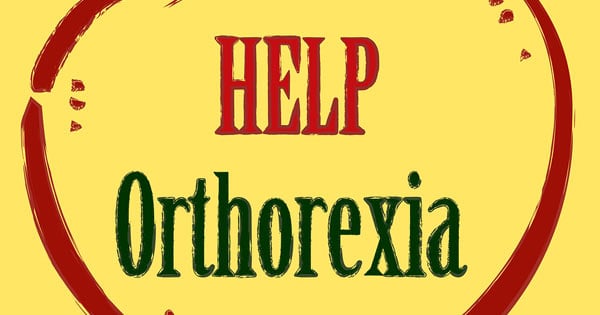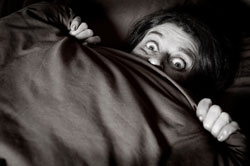Treatments
 For many years health challenge treatments were focused on medications only. But there is a sweeping change upon us as medical science begins to understand the power of our own system to aid our wellness, and the harmful side-effects of many medications.
For many years health challenge treatments were focused on medications only. But there is a sweeping change upon us as medical science begins to understand the power of our own system to aid our wellness, and the harmful side-effects of many medications.
Treatments in many health issues today aren’t just about prescription drugs but includes therapies that tap into our body’s own ability to fight “invasions” using the power of our own mind. In most instances this isn’t instead of, but in addition to, prescribed medication. But where prescription drugs have not, or cannot, help, then other therapies are sought.
Treatments today need to provide long-term solutions and not just address symptoms, and the selection of materials you’ll find here cover insights into hypnosis, mental illness, cognitive behavioral therapy, stress and anxiety, and much more.
Enjoy the articles.
 For many years health challenge treatments were focused on medications only. But there is a sweeping change upon us as medical science begins to understand the power of our own system to aid our wellness, and the harmful side-effects of many medications.
For many years health challenge treatments were focused on medications only. But there is a sweeping change upon us as medical science begins to understand the power of our own system to aid our wellness, and the harmful side-effects of many medications.Most people have heard of Seasonal Affective Disorder or S.A.D. It affects about 4%-6% of the U.S. population and is usually attributed to the onset of shorter and colder days. However, about 10% of people suffering with SAD get the depression in the warmer summertime months. Summer depression, really? “Come on!”, you must be exclaiming. Well, seasonal affective disorder is actually ‘seasonal’ but it’s not the same kind of depression that one might have in the summer time. Then what does cause this depression? Read on to discover here…
Read MoreAre you someone who’s struggled with, or currently struggles with insomnia? Well, you’re not alone! There are many people who suffer with sleep issues, so don’t lose even more sleep over worrying about whether or not you’re going crazy! According to The American Academy of Sleep Medicine, 30-35% percent of Americans struggle with brief symptoms of insomnia, 15-20% of people have short term insomnia which lasts up to three months, and 10% of Americans have chronic insomnia, which affects them at least 3 times a week and this can last up to three months. So see! There are a lot of people not getting enough Zzzzzz’s! When insomnia begins to affect both your physical and mental health, then perhaps it’s time to do something about it and start getting the help for the sleep you’re so desperately need. Read on to discover more…
Read MoreWhen you discuss the topic of hypnosis with anyone, they’re usually confused with grasping the concept. Many people have trouble believing hypnosis is real, and those that teeter on the fence with regards to what it is and what it can do, usually believe there is some mystery or something entirely mystical about hypnosis in a magical sense. The fact is hypnosis is real and there’s nothing mystical or magical about it. If there is any element of mystery it surrounds the subconscious mind and how it works and not hypnosis. Many hypnotherapists will tell you all hypnosis is self-hypnosis. This stems from the perspective Hypnosis only works if you’re actively participating in it and so in effect you’re actually doing it to yourself. This is an over simplification of the process where a therapist is involved but as the goal here is to discuss general hypnosis we can put this debate aside for today. Hypnosis works on our subconscious mind also called the unconscious mind – different terms same thing. The subconscious mind among other things controls our habits. It’s a life-saving device for us, for example making sure we continue the habit of breathing when we fall asleep! Read more here…
Read MoreAre you an orthorexic? If you have never heard of this concept, then perhaps you might want to read on as this is not a new phenomenon, but one that is getting more attention due to the greater emphasis in today’s society on eating healthy. Are you obsessed with eating healthy all of the time? Orthorexia nervosa was first coined by Dr. Steven Bratman to describe his own experiences with food choices and eating. It is not currently listed in the DSM-5 as an actual eating disorder, but has many of the qualities of an eating disorder which makes it similar to actual eating disorders such as anorexia nervosa and bulimia. In a nutshell, othorexics have an unhealthy obsession with eating healthy all of the time. Read more…
Read More“I know what you are thinking, and I don’t like it!”, so you say. “Really? Why would you say that?” she responds. “I can tell by the look on your face, you are thinking bad things about me,” you respond. “Really? Actually I was just thinking about how bloated I feel,” she replies, looking less than amused. Are you a fortune teller, seer, or psychic who thinks they possess this tremendous gift of clairvoyance whereby you can not only predict what other people are thinking, but you can actually read their minds? If so, you are going to learn a lot of miserable lessons in life.
Read MoreA New Year is here and many people are already discussing how they want to, or plan on losing weight in the New Year. Many people will be going to weight loss clinics, gyms, paying personal trainers or dieticians, and trying to eat right. When I refer to “right” I am referring to the “right” healthier foods or best super foods. Interestingly, many people have difficulty losing the weight they want to lose because they do not eat at the “right” times of the day! The right time to eat is before night time, you know that “time” of the day when your body is slowing down in terms of metabolism and sucks up calories like a Chia Pet! Here’s more…
Read MoreOver the last few years, the outbreak of the virus known as shingles has become more prevalent in North America. The virus itself appears first inside the body and the symptoms develop on the skin as an extremely painful rash that resembles chicken pox. Most often the pustules appear as blisters on the torso, sides, upper back and neck of the individual. Some of the more painful lesions spring forth on the face and the upper neck. The virus itself, “varicella-zoster” is the same virus that causes chicken pox. Interestingly, once you have had chicken pox, which most people have when they were children, the virus remains in the body inactive. Read more here…
Read MoreDo you remember when you were a kid how you would dread going to bed because it meant being all alone in your little bed in the darkness? Of course you absolutely had to have the closet door shut as you worried you might look in that direction and perhaps see red eyes staring back at you. Maybe you had to check underneath your bed or behind your bedroom door to make sure the “boogieman” wasn’t hiding there, waiting to gobble you up! At least you are an adult now and there is no need to worry anymore about sleeping with the lights on, or at least with a tiny little night light, or is there? Read how to overcome it here…
Read MoreDo you find that loud noises, especially the sudden ones bother you? Do you become easily unraveled, even jittery after hearing loud sounds that you are stressed out for a long period of time thereafter? Are there certain sounds that you just can’t seem to block out no matter what you do that get so deep under your skin that they lead you to feeling irate? Perhaps you possess Misophonia, which is a sensitivity to loud or repetitive noises. Is it normal? If so, what can you do about it to change it? Read more…
Read MoreMore information is available today than ever before on Tourette Syndrome and Obsessive Compulsive Disorders (OCD) which often are at the root of facial tics. Tourette Syndrome is a neurological disorder that demonstrates strong symptoms which include ticking and sudden movements. The most common early symptoms seen in Tourette Syndrome are tics that include facial tics, rapid eye blinking and squinting, as well as twitches that involve the mouth. The onset of this disorder usually occurs in older children and teens, before the age of 18 years of age. In order for the tics to be directly correlated too, or related to Tourette Syndrome, the tics must be persistent for at least one year in the individual. Moreover, the tics become so mild to very intense, and can come in bouts throughout the course of a day, or sporadically. In some instances, the ticking may stop for several days, or even weeks only to return.
Read MoreCATEGORIES
FEATURED POSTS

DISCOVER HOW TO START CHANGING HABITS TODAY.
In this free audio hypnosis session, you’ll experience the power of your subconscious mind to begin to change your habits. If you've never experienced hypnosis before then this is a great introduction...











